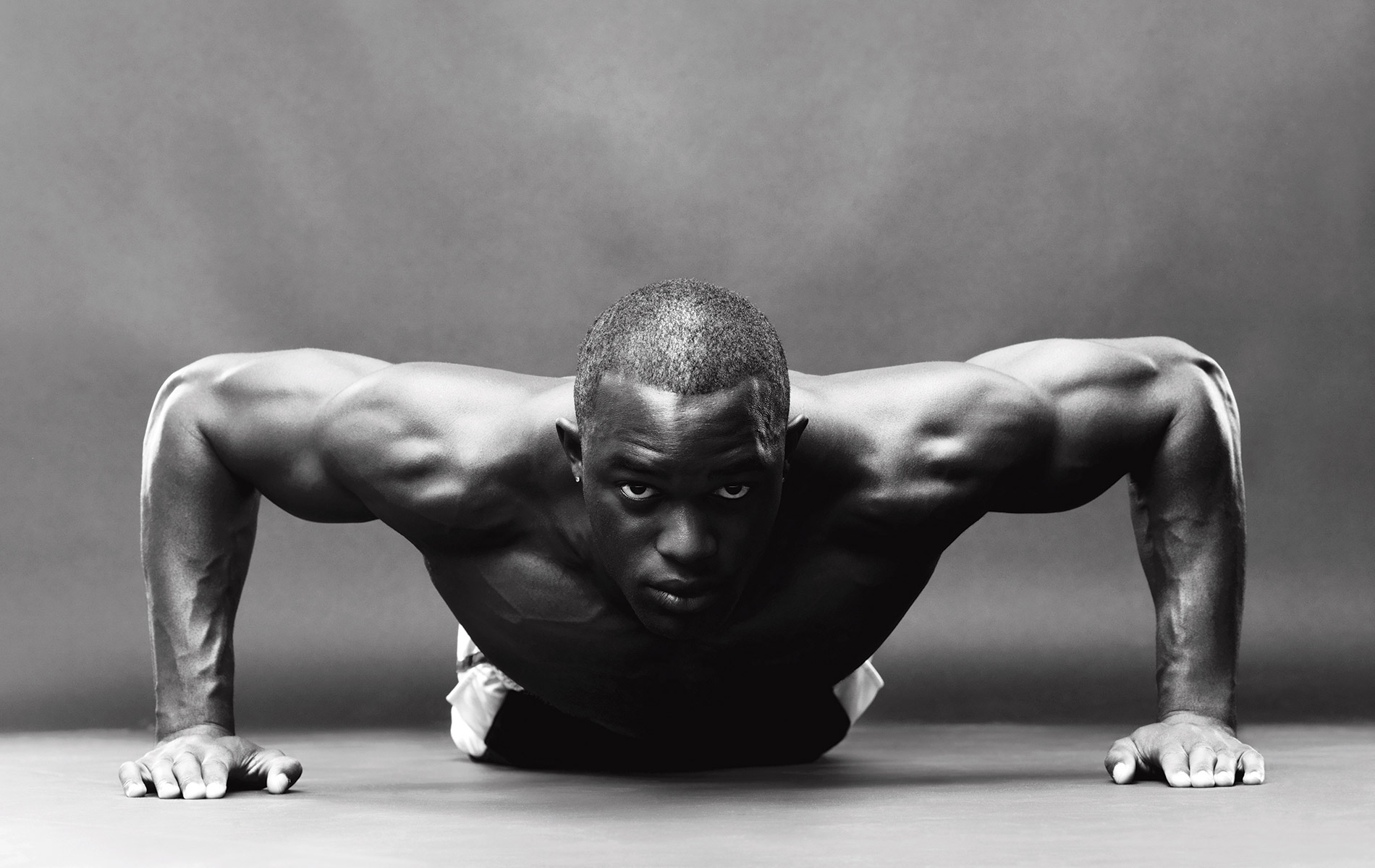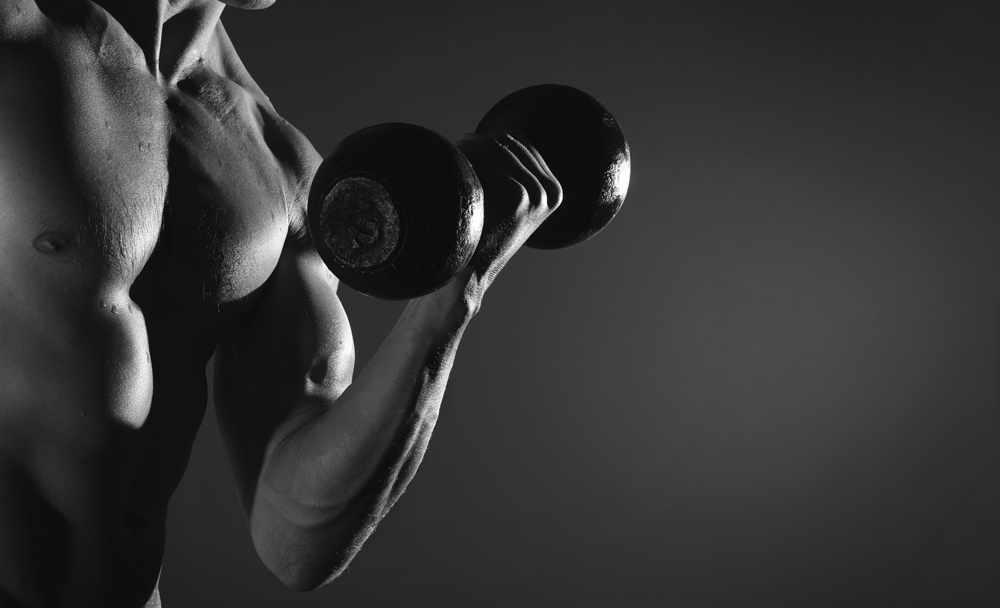
vie-magazine-health-nut
Testosterone
The Critical Male Hormone
By Clark Peters
I would urge every man over the age of thirty to read this article carefully. This is not hubris on my part. Rather, you will learn about a scientifically proven way to enhance a man’s quality of life for decades during midlife regardless of his age when beginning the protocol.
Our endocrine system (our various glands and the hormones they produce) is very complex and very delicate. Imbalances within the system can vary from subtle to dramatic, but no imbalance is good for health or mood. These hormones impact energy, sleep, libido, mood, aging, lean body mass, nutrition utilization, elimination, and so on—just about every function in the body. In short, these hormones control all the things that enhance our well-being and make for a healthy, happy life.
Most men will be aware of the hormonal changes women deal with monthly once they reach sexual maturity, but PMS pales in comparison to perimenopause and menopause (loose translation: the cessation of the egg production cycle and menstruation). For most women, this “change of life,” usually occurring in the midforties to early fifties, is a trying experience at best. Suzanne Somers named the symptoms “the Seven Dwarfs of Menopause: Itchy, Bitchy, Sleepy, Sweaty, Bloated, Forgetful, and All Dried Up.” Some women escape some of these effects or sail through menopause with only minor discomfort, but, for most, it is a truly uncomfortable time—all caused by massive hormonal swings as the body shuts down the reproductive mechanisms. For middle-aged married men (or men with a significant other), this phenomenon can be a trying experience as well.
Part of men’s consternation regarding this time is that we have no way to relate to it. While we, too, are going through hormonal changes, ours are so subtle and over such a long period of time that they are almost unnoticeable. Rather, what happens is that at some point during middle age (the midfifties, in my case), we start to realize that we have experienced a decline in things long taken for granted, including:
- energy;
- sleep;
- muscle tone;
- a well-defined waistline;
- erections;
- sexual drive, performance, stamina, and recovery time;
- an optimistic, cheerful state of mind, and so on—each man will have his own list.

This occurs because, unnoticed, one of the key male hormones—testosterone—has been slowly but steadily declining each year, starting usually in the mid-thirties. Studies suggest that a decline of between 1 and 3 percent per year is typical. Over a decade or two, then, a significant lessening of this key hormone slowly and subtly takes place. There are some notable exceptions to this pattern—for example, men in their seventies and eighties with testosterone levels at optimal levels. But for most men, the small, progressive loss of this key hormone is the rule. Clearly, then, starting in their thirties, men should have a hormone panel done with every annual physical. If undiscovered and unchecked, this slow erosion continues to the point where:
- significant lean body mass is lost and usually replaced with fat;
- libido, performance, and interest in sexual activity noticeably decline;
- degradation of mood occurs—perhaps tied in part to loss of interest in sex, but more likely due to hormonal imbalance;
- mild to significant depression is possible; and
- sleep patterns, energy levels, and even eating, digestion, and elimination processes are negatively impacted.
Obviously, endocrine balance is critical and we know that one of the key hormones, testosterone, is a significant contributor to this imbalance after the small annual loss accumulates.
It is perhaps not surprising, then, to see a variety of products on supermarket and drugstore shelves that purport to “fix” the problem. Almost all have “andro” (the male equivalent of menopause is called andropause) or “testo” as part of the brand name. Do not be misled. All of these products make claims which, to date, have no scientific evidence of efficacy. Despite all the testimonials and claims, the only possibility for improvement would be due to a short-lived placebo effect.
The only proven way to address the slow but inevitable decline of your manhood is through bioidentical hormone replacement therapy. The phrase “bioidentical” is key. Any substance that is not bioidentical will be resisted and ultimately rejected by your body. Fortunately, science and medicine have developed a substance that replaces and maintains, when used regularly, a proper and balanced testosterone level.
There are a variety of methods to achieve this hormonal improvement and balance. Because testosterone is a very powerful and important hormone, any of these methods will require a prescription from a knowledgeable doctor. The best doctors are those who very gradually introduce testosterone, followed by frequent blood work to determine the impact of the protocol not only on levels of this hormone, but on all other hormones as well. If you’ll recall, a change in one hormone has an impact on all the others. This program—which may take years, in some cases, until balance is reached—requires both patience and trust in a qualified doctor. The temptation, of course, is to think, “Well, if a little is good, a lot will be better.” Not true! Imbalances in this system ricochet throughout the body in a negative way, and overdosing is a sure path to serious problems.
The only proven way to address the slow but inevitable decline of your manhood is through bioidentical hormone replacement therapy.
The delivery systems for testosterone vary. The simplest would be a pill, of course, but a significant number of serious liver issues have resulted from ingesting the hormone rather than introducing it to the bloodstream via tissue. The next easiest are patches or creams applied directly to your skin and absorbed. These may not be the answer for some (myself included) if the patches irritate the skin or the creams are not absorbed. Intramuscular injections (usually twice per week and self-administered) work well but, while not painful, are not for the squeamish—the needle has to be long enough and substantial enough to penetrate through fatty tissue and into muscle. A recent breakthrough makes injections into fatty tissue just as effective and much easier for the patient—the needle is just long enough to break the skin and can therefore be much shorter and thinner. These shots are typically self-administered twice weekly also.
Another methodology involves out-patient surgery in which a packet of time-released hormone is surgically implanted in the buttock. The packets are designed to gradually release the hormone into the system over a period of six months. Problems arise when the substance is released either too quickly or too slowly. Whichever occurs, the patient is forced to live with the resulting condition until the six months are up. I actually had this treatment done under the care of a previous physician, and I was the Energizer Bunny for about two months, after which I “crashed.” This resulted in significant mood decline, which required medication for depression. I suggest you avoid this approach if possible.
If you and your doctor can get it right—and again, I urge you to seek a knowledgeable and conservative doctor—the results are little short of astounding. There are undoubtedly many additional positives of which I am unaware, but the major differences I experienced included:
- significant increase in energy, almost immediately;
- increase in sexual energy and substantial improvement in libido and performance;
- better and more restful sleep;
- improved ability to convert exercise into lean body mass and loss of fat; and
- subtle but definite improvement of mood.
Most men hear the word “testosterone” and think “sex.” To be sure, that part of your life will change for the better. But review the other changes above. Literally every function of life seems to get better once you get your hormones balanced and back to the level of a young man. I believe the protocol turns back the clock and dampens the effects of aging going forward.
As you can infer, I am sold on this protocol for all men over thirty years of age, and I am positive that bioidentical hormone replacement therapy can provide benefits at any age. I just wish it had been available and I had been aware of it earlier in my life.
I would be remiss, however, if I did not mention a couple of changes I experienced that I believe are common side effects and may be off-putting to some men. The first was but a minor annoyance—I started sprouting hair in places that were relatively bare before the protocol (back, upper arms, etc.). This side effect was not a huge drawback for me. The second will be potentially more troubling to some men. Your testicles will become noticeably smaller. That is because you are, with injections, taking over one of the primary functions of the testicles—that of producing (in addition to sperm) the hormone testosterone. Additionally, you should be aware that, once you have been on the protocol for a period of time, it is unlikely, if you stop the treatment, that your testicles will suddenly “wake up” and resume production of this hormone—even at the lower levels that caused you to begin the protocol. Consequently, the program is an activity that you should plan on continuing for most of the rest of your life. It should comfort you to know, however, that the rest of your life will become much more energetic, healthy, sexy, and fun!
— V —
Share This Story!
KEEP UP WITH THE LATEST STORIES FROM VIE
















































































































































